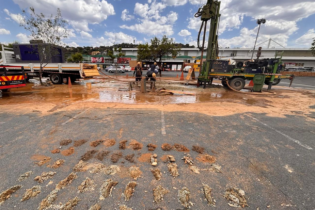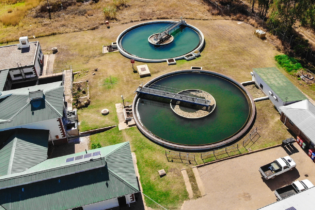The South African Local Government Association (SALGA) values opportunities for intergovernmental dialogue and welcomed the recent National Water and Sanitation Indaba, held on 27 and 28 March 2025. The Indaba provided a platform to confront the country’s deepening water challenges and reaffirm the importance of collaborative governance.
SALGA commends the President and Deputy President for their thoughtful and measured contributions, which reflected a clear understanding of the water sector’s complexity and the urgent need for aligned and cooperative action across all spheres of government. Their recognition of the need for inclusive engagement and sustainable solutions set the tone for meaningful discourse. However, SALGA must express serious concern regarding statements made by the Minister of Water and Sanitation during the proceedings. Despite previous commitments, including one made by the Department of Water and Sanitation (DWS) in August 2024 to establish an inclusive intergovernmental structure that formally acknowledges the role of local government in the water sector, no tangible progress has been made. This continued delay raises legitimate questions about the Department’s willingness to uphold the spirit of cooperative governance as enshrined in the Constitution. At the Indaba, SALGA restated a fundamental constitutional truth: local government is not a subordinate entity, but an equal and autonomous sphere of government. Disappointingly, the Minister’s response to this assertion dismissed both its legal basis and practical importance. Particularly troubling was the outright rejection of SALGA’s call to avoid criminalising municipalities, and instead, pursue joint solutions that address systemic service delivery challenges. The Minister’s endorsement of punitive legal action against municipalities not only undermines collaborative problem-solving but also threatens to drain public resources, delay service delivery, and discourage skilled professionals from entering the local government sector. Of even greater concern was the Minister’s reported remark:
“If it means violating the Constitution, let us violate the Constitution to give the people water.”Such a statement, made by a Cabinet Minister, is deeply alarming and contradicts the core principles of constitutional democracy. The absence of a retraction or clarification reflects a disregard for the rule of law and undermines public confidence in government institutions. If genuine concerns exist about constitutional limitations, the appropriate course of action is legislative reform, not unconstitutional conduct. SALGA also used the Indaba to highlight ongoing dysfunction in Water Boards, whose operational inefficiencies and unilateral tariff setting continue to erode municipal sustainability. Water Boards often operate with limited oversight, yet their decisions have direct financial and reputational consequences for municipalities, which are ultimately held accountable by the public. The imposition of above-inflation bulk water tariffs, without due consultation, has exacerbated household debt and deepened municipal financial distress an untenable situation for both governance and service delivery.







